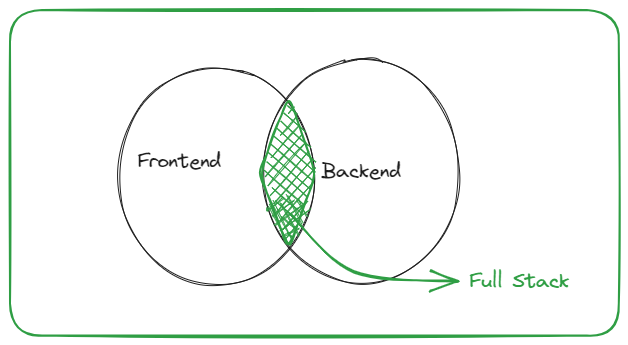Becoming a full-stack developer involves acquiring a broad range of skills in both front-end and back-end web development. Here's a step-by-step guide to help you on your journey to becoming a full-stack developer:
Foundation in Web Technologies:
- Start with the basics of HTML, CSS, and JavaScript, as they form the foundation of web development.
- Learn about DOM manipulation, styling, and basic interactivity with JavaScript.
Front-End Development:
- Dive deeper into front-end development by learning popular frameworks like React, Angular, or Vue.js.
- Understand how to build responsive and user-friendly interfaces.
- Learn about version control systems like Git to manage your code effectively.
Back-End Development:
- Choose a server-side language to learn, such as .NET, Python, Ruby, JavaScript (Node.js), PHP, or Java.
- Understand server-side concepts like handling HTTP requests, databases, and APIs.
- Learn about databases, including SQL (e.g., MySQL, PostgreSQL) and NoSQL (e.g., MongoDB) options.
Databases:
- Gain knowledge of database design, data modeling, and querying languages like SQL.
- Learn how to interact with databases from the back-end using your chosen server-side language.
Full-Stack Frameworks:
- Explore full-stack frameworks like Django (Python), Ruby on Rails (Ruby), or MEAN (MongoDB, Express.js, Angular, Node.js).
- These frameworks provide tools and structures to build both front-end and back-end components efficiently.
APIs and Microservices:
- Learn how to build and consume APIs (Application Programming Interfaces) to communicate between front-end and back-end components.
- Understand microservices architecture to build scalable and modular applications.
Version Control:
- Master Git and understand how to work collaboratively on projects, manage branches, and handle code merges.
Deployment and Hosting:
- Learn how to deploy your applications to web servers or cloud platforms like AWS, Heroku, or Azure.
Testing and Debugging:
- Learn about testing methodologies and tools to ensure the reliability and functionality of your code.
- Practice debugging techniques to find and fix issues in your applications.
Continuous Learning:
- Web development is a rapidly evolving field, so stay up-to-date with the latest trends, frameworks, and best practices.
- Follow blogs, attend webinars, and participate in online coding communities to keep learning.
Build Projects:
- Apply your knowledge by building real-world projects. Building projects will help reinforce your skills and create a portfolio to showcase your work to potential employers.
Networking and Collaboration:
- Engage with the developer community through meetups, conferences, and online forums.
- Collaborate on open-source projects to gain practical experience and connect with other developers.
Remember, becoming a full-stack developer is a journey that takes time and dedication. Stay persistent, keep coding, and continuously expand your skillset, and you'll be on your way to becoming a successful full-stack developer.
